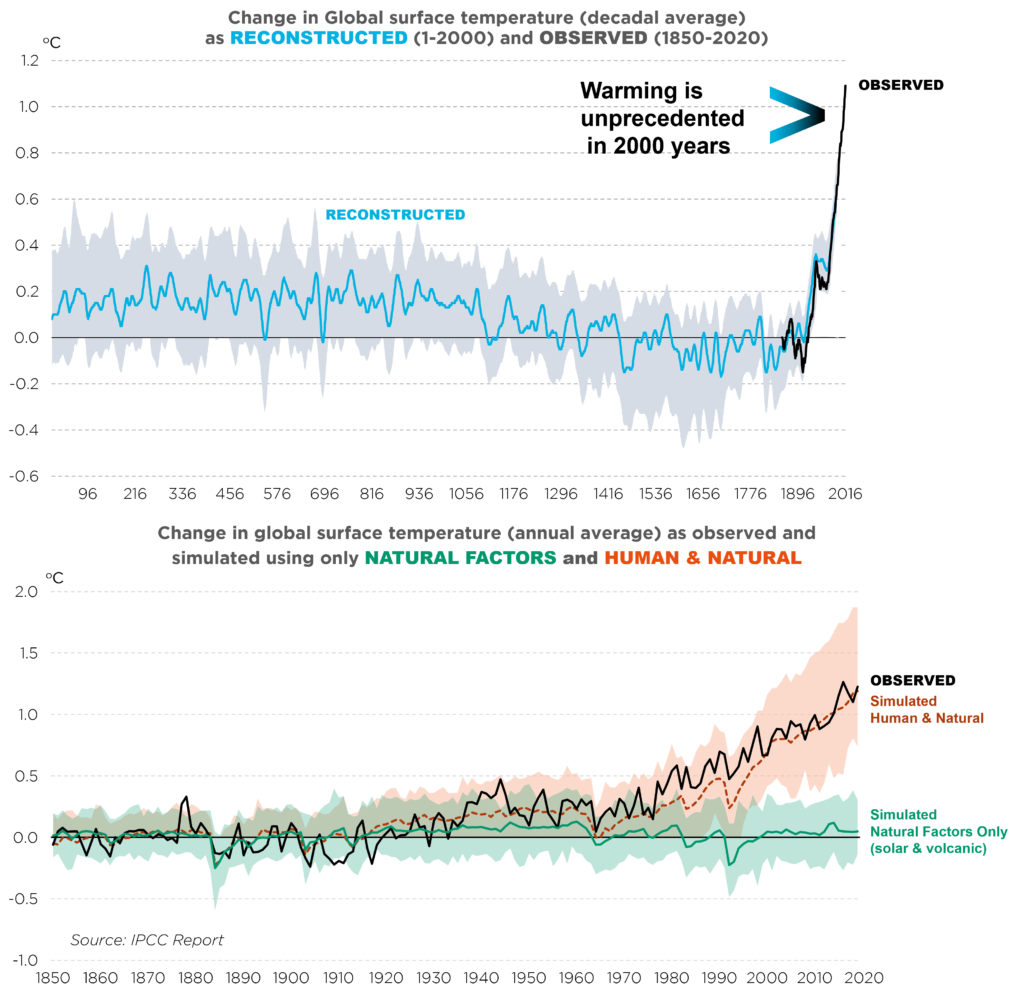CODE RED: Now or never for climate change action
Science is inherently conservative, never assuming certainty but rather seeking to thoughtfully improve current knowledge incrementally.
That is why the headlines from Monday’s IPCC report, that scientists unanimously believe climate change is result of human activity and that if we don’t do something about our Carbon emissions now it will be too late, is so stark.
In fact, the scientists confirm that we are already seeing the impacts of climate change, with increased frequency of extreme weather events, such as the temperatures seen in the West of the US and the Wildfires seen in Europe this year.
The charts below show us how global surface temperatures have changed over the past 2000 years, and the difference in the pre-industrial era to now couldn’t be more glaring.

What else did the report say?
The report itself is incredibly detailed, running for something like 3,900 pages but it lays out what the world will look like if we don’t take radical action:
- Higher global temperatures and increased periods of extreme heat
- Greater levels of precipitation and flooding
- Increased occurrence of tropical cyclones and wind storms
- Coastal flooding, increased ocean acidity and increased ocean temperatures
Many of the effects of climate change also reinforce the problem, causing a vicious cycle of negative feedback. The report also utilises current Carbon levels to predict that if we want a 50% chance of limiting warming to 1.5C, we have just 11 years of Carbon budget remaining after which we must be carbon neutral.
There can be no doubt that upon reading the report policy makers will be struck by the humanitarian, and potentially economic crisis that could unfold without action. SwissRe estimated earlier this year that failure to act could cost the World 18% in GDP terms – a far greater cost than that of the Coronavirus.
Hope is not lost
So how might the world achieve this? There are several events on the horizon that we are keeping an eye on, but primarily the UN Climate Change Conference (COP26) held in Glasgow in October this year will be key to government policy settings with regards to Climate Change over the next 5 years. It is hoped that governments globally collaborate on transparent plans to achieve net zero, as well as outline how they will invest to achieve this, and help encourage private investors to do so too.
Within private markets, we are seeing greater flows into areas such as renewable power generation, carbon capture technologies and many other novel approaches to combatting this problem. The rise of green bonds and loans help to finance these projects, as well as flows from investors in equity markets are helping, but there is still a long way to go, and much more investment that needs to take place.
It is a long, and arduous road to reach Carbon Neutrality, but our firm belief is that reports like this cement the importance of doing so, and doing so quickly.



